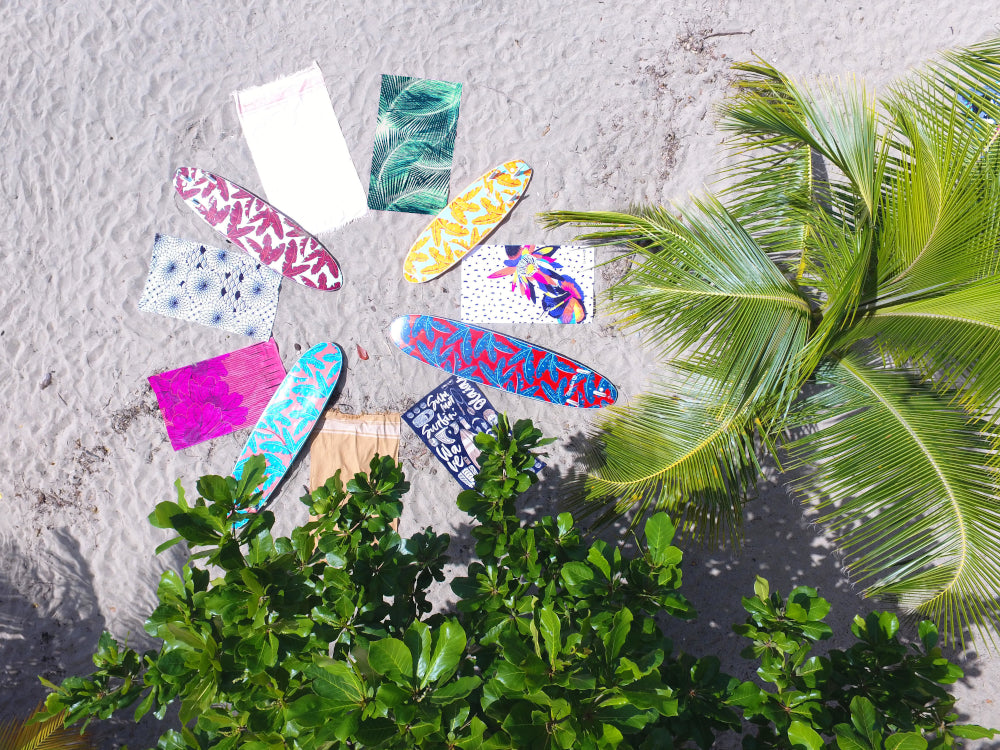Assess the Damage to Your Surfboard
Your surfing session having been brought to an early finish, all that’s left is to assess the severity of the damage done to your foam surfboard. Here we explain some of their most common causes.
Please note that foam is a component which is designed to absorb shocks. Following various impacts (falls, collision with other surfboards), it is possible that the foam on the deck of your surfboard is dented. Other than from an aesthetic perspective, dents won’t alter the performance of your foam surfboard in any way.
A Nick / Cut on the Fin
Don't forget to review the surfing priority guidelines, otherwise you may risk causing a collision with another surfer. In the unfortunate event that you do collide with another surfer and that they are riding a resin surfboard, an impact between your boards, or rather, a collision with its sharp fins, would result in cuts to your edge or your foam padding. Nobody wants that.
Edge Detachment
We will never stop repeating this: do not leave your foam surfboard in direct sunlight or in the boot of your car. Exposing your foam surfboard to high temperatures will result in the foam coming unstuck from the slick of your surfboard, or, at the very least, create blisters in the surface of the deck. Get yourself a surfboard cover to protect your foam surfboard from any heat!
Collapsed Foam on the Tail
Once you've finished your surfing session, rest your foam surfboard out of direct sunlight, flat or on its side, or on its edge. Avoid, as far as possible, storing your surfboard in an upright position on the tail, otherwise you may see the foam begin to collapse over time.
Video Tutorial: Steps for Repairing Your Epoxy Surfboard
Equipment Needed to Repair a Foam Surfboard
Silicon Adhesive/sealant
Wooden Rods
Masking Tape
Cutter
Tom’s Advice for Successfully Repairing a Foam Surfboard
Before starting any repair work on your foam surfboard: leave your surfboard to full dry in the sun, so that any water that has infiltrated it can evaporate completely.
Prepare all of the tools that you need for repairing your surfboard in advance: Silicon adhesive/sealant + Rods + Masking tape + Cutter.
The masking tape will allow you to create a smoother appearance for your repair work using silicon adhesive, once dried.
Finally, make sure you follow the silicon adhesive/sealant’s recommended drying time.
On a surfing trip and don't have a surfboard repair kit to hand? If you can’t stop yourself from heading back into the water, place thick adhesive tape over the damage on your surfboard. This emergency solution does not substitute proper repair work. Most importantly, do not attempt to fill any cracks in your board with wax!






